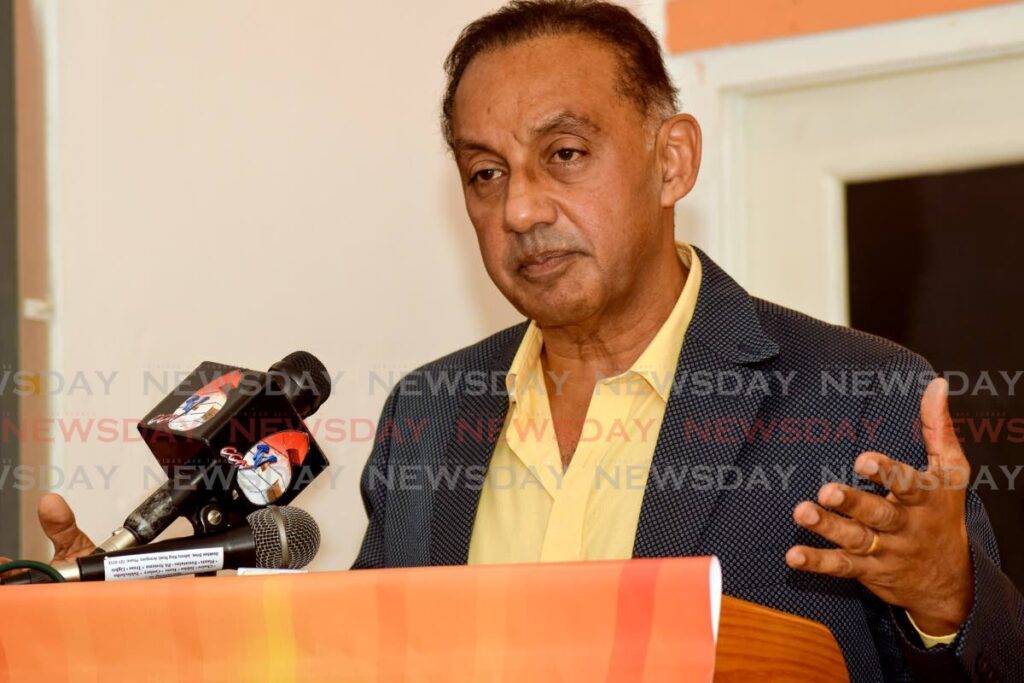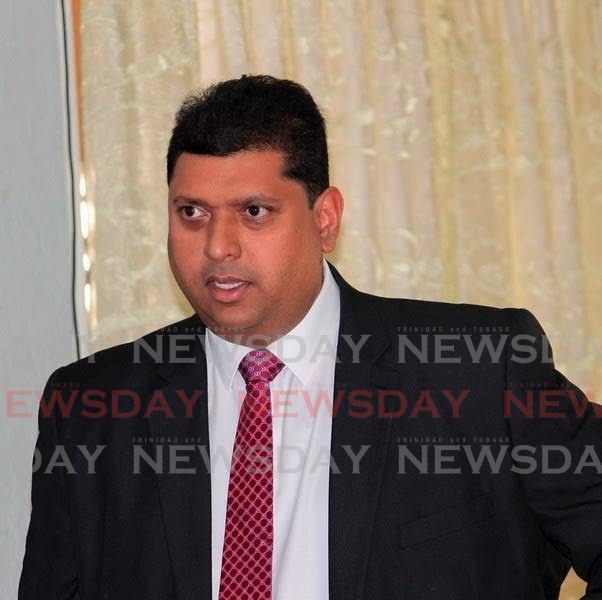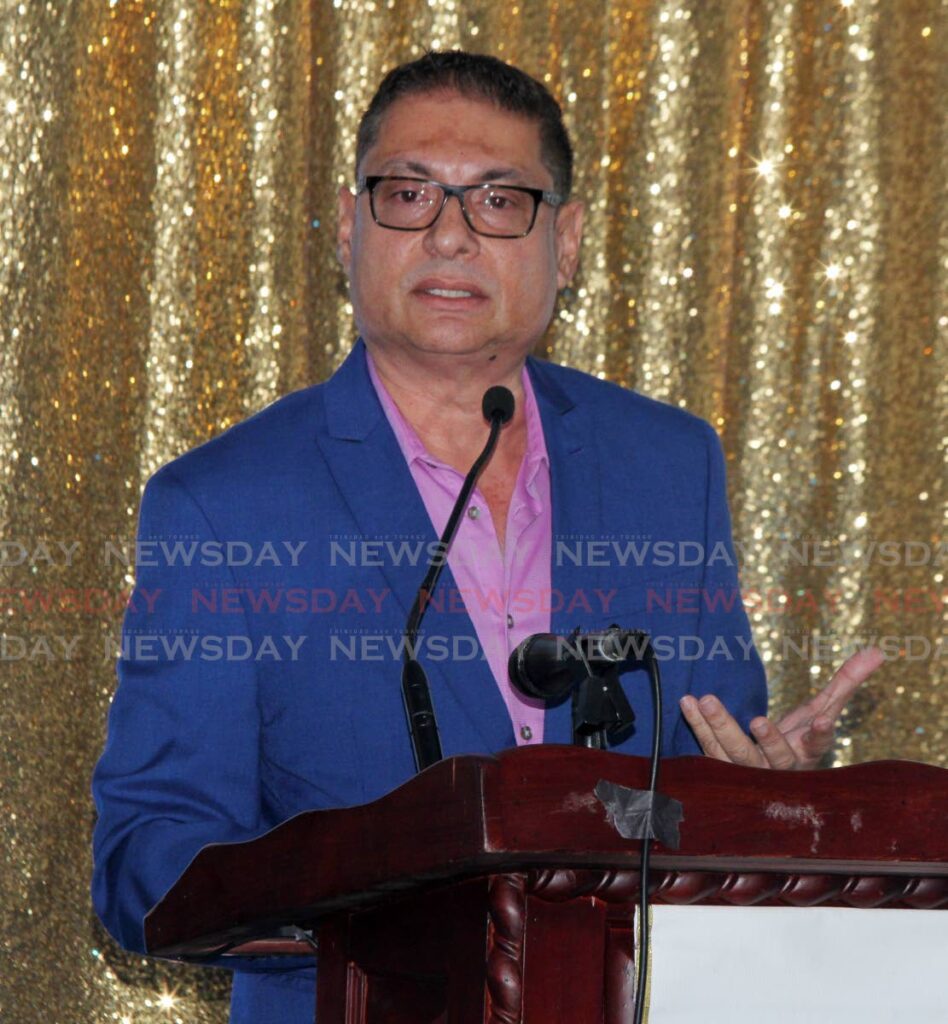Stakeholders on Dragon gas deal: KISS OF LIFE FOR TRINIDAD AND TOBAGO

THE extension of the licence issued by the US Office of Foreign Assets Control (OFAC) for Trinidad and Tobago to access natural gas from the Dragon gas field in Venezuela and the ability to pay for that gas in different ways was welcomed with a mix of optimism and calls for Government to move expeditiously to seize this opportunity.
Among those commenting were former government ministers Vasant Bharath and Kevin Ramnarine, energy analyst Gregory McGuire, UWI economist Dr Vaalmiki Arjoon, Greater San Fernando Chamber of Commerce president Kiran Singh, the American Chamber of Commerce (Amcham) and the Confederation of Regional Business Chambers (CRBC).
Energy Minister Stuart Young announced the extension of the licence to October 31, 2025, at a news conference at the Port of Spain International Waterfront Centre on Tuesday.
He said the extension for a further two years gives Government “more than enough time for us to get done what needs to get done.”
The original OFAC licence to TT was granted in January.
Young said the extension also allows Government to pay for gas from the field in “fiat currency, as well as US dollars, as well as (Venezuelan bolivares), as well as via humanitarian measures.”
Bharath praised Young, his ministry, Shell and the National Gas Company (NGC) for this development.
He said this project has been stalled for decades as a result of lack of capital, partners and US sanctions against Venezuela.
Bharath said it is not a secret that for the last decade, an insufficient feedstock of natural gas has hampered the operations of many companies at the Point Lisas Industrial Estate.
In this context, he said the extension of the OFAC licence “presents a much-needed kiss of life to operators in Point Lisas as well as TT’s ability to attract new FDI (foreign direct investment).” Bharath views the widening of the agreement to allow different ways to pay for the gas as “a welcome sign that the US is continuing its efforts to bolster supplies in the global energy market, which remains disrupted by the Russian invasion of Ukraine.”
He wanted to see the details of the financial arrangements for the project, including profit-sharing arrangements. Bharath said this is important “particularly, in light of the fact that PDVSA (Venezuela’s state energy company) has been crippled for decades with sanctions, lack of investment, loss of skilled labour, corruption and mismanagement.”
From his conversations with experts in TT and Venezuela, Ramnarine said it could take a minimum of two years to access the first gas from Dragon.
“A question mark hangs on the status of the wells that were drilled in the Dragon field almost 14 years ago and what infrastructure would be required to produce the natural gas and handle the associated liquids.”
Ramnarine said the public should be told what the total capital expenditure for the project is, who will fund it and “what money the NGC would be required to put out.”

He underscored the importance of timelines.
Ramnarine said Shell was awarded front-end engineering and design contracts for the Manatee field for the first quarter of 2023, with the first gas from Manatee in the first quarter of 2028.
“These timelines are indicative of the technical and engineering realities of these projects.”
While a lot of commercial and technical work needs to be done, Ramnarine said, “I think two years is optimistic.”
This optimism, he continued, “is based on a political deliverable given the encroachment of the next general election (in 2025).
McGuire said, “It’s positive news. Prospects for an investment decision look better.” He added, “The timeframe is still very tight and much still depends on the path taken by Venezuela in pursuing a solution to its political crisis.”
The US government had previously said it would consider easing restrictions on Venezuela if its president, Nicolas Maduro, allowed free and fair elections.
The Associated Press (AP) reported on Tuesday that Venezuela’s government and a faction of its opposition agreed formally to work together to “reach a series of basic conditions for the next presidential election, including scheduling the contest for the second half of 2024.”
Arjoon said once Dragon gas can be monetised and exported, “this can be the start of a new era for further cross-border energy partnerships between Trinidad and Venezuela, and even other South American economies.”
He added, “Our gas production has declined by 36 per cent in the last decade and currently stands at approximately 2.5 bcf (billion cubic feet) per day.”
Apart from supplementing domestic gas production, Arjoon said the success of the Dragon gas deal may open doors to other opportunities in Venezuela.
“Venezuela boasts the ninth largest gas reserves globally, standing at 203 trillion cubic feet (tcf), yet it’s not an exporter.”
Arjoon said Maduro is actively working to change this as shown by granting gas export licences to Repsol and Eni SPA.

“Venezuelan law allows international companies to invest independently in the natural-gas sector, without requiring partnership with PDVSA.”
Arjoon believed Maduro would prefer US-dollar payments for Venezuela’s share in the Dragon gas deal “given their substantial need for US-dollar investments to rejuvenate their petroleum infrastructure.”
He said that expenditure could range from US$110-$250 billion, despite recent investments from Russia, China and Iran.
Arjoon suggested Venezuelan gas should be looked at as one part of TT’s hydrocarbon equation.
He said the other part should be continued adjustments to the fiscal strategy to incentivise energy companies to make added local investments.
“An enhanced fiscal strategy can ensure greater success in future bid rounds.”
Singh said, “This announcement will bring back some level of confidence to the energy sector, which has been languishing for some time.”

Chamber of Commerce Kiran Singh -
The domestic petrochemical sector, he continued, “will benefit tremendously from a new gas inflow.
“The payment for the new supply via cash or humanitarian means will encourage a steady flow for the medium term.”
He said the Dragon gas deal can play an important role in TT’s economic diversification.
“It will also buy us much-needed time to prepare for the incoming revenue stream and to enable the diversification process.”
In a statement, Amcham was optimistic that “this latest development will lead to several opportunities for our energy sector.”
Amcham promised to continue to support these efforts through its engagement with various arms of the US government and private sector.
“We also take note of and welcome recent, Caricom-supported agreements that could lead to the strengthening of Venezuela’s democracy and, ultimately, full reintegration into hemispheric systems.”
In a separate statement, the CRBC said, “It’s a major step in the right direction as US payments were probably the biggest hurdle.”
The CRBC acknowledged there remains a lot of regulatory and commercial work to do by both TT and Venezuela to ensure the success of the project.
The CRBC wished Government “every success in this Dragon Gas field project and looks forward to a brighter outlook for Trinidad and Tobago due to their strategic efforts.”

Comments
"Stakeholders on Dragon gas deal: KISS OF LIFE FOR TRINIDAD AND TOBAGO"